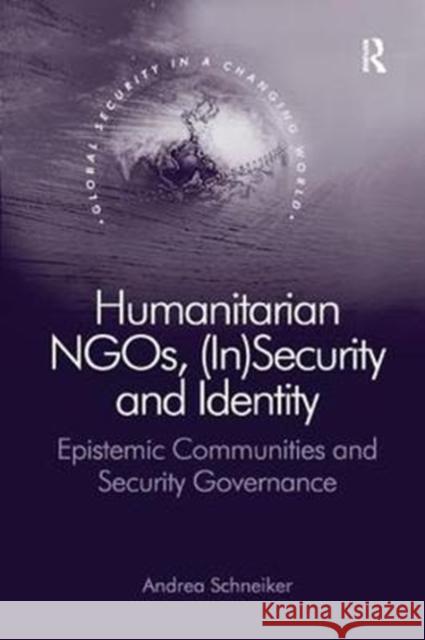Humanitarian Ngos, (In)Security and Identity: Epistemic Communities and Security Governance » książka
Humanitarian Ngos, (In)Security and Identity: Epistemic Communities and Security Governance
ISBN-13: 9781138573093 / Angielski / Miękka / 2017 / 164 str.
Increasingly humanitarian NGOs operate in the context of armed conflicts where the security risks are higher than in contexts of natural disaster. For NGOs it is difficult to accept that they are attacked despite their good intentions, sometimes even by the very communities they seek to help. As such, humanitarian NGOs have to change their approaches to security by not only adapting their policies, procedures and structures to the changing environment, but also review the underlying principles of their work. This book contributes to debates by demonstrating how issues of (in)security affect humanitarian NGOs and the humanitarian identity, situating the structural changes within the humanitarian NGO community in the context of conflict aid governance and explains how non-state actors establish their own governance structures, independent from state-sponsored solutions, and contributes to the emerging literature on the redefinition of the concept of epistemic communities.











